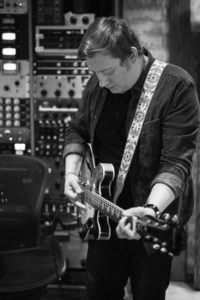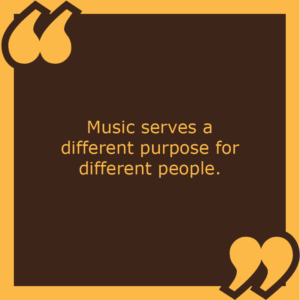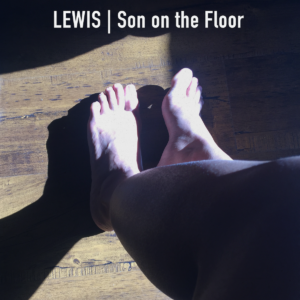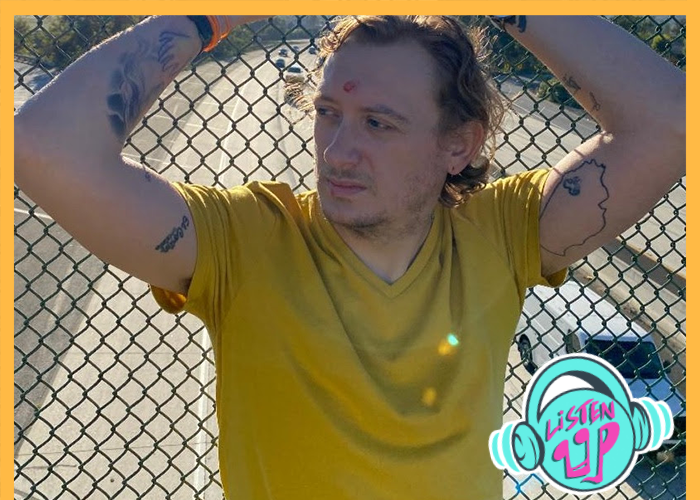
Christopher Lee Lewis, former frontman for The Kinison, has put himself out there – good and bad – for the world to examine with his new solo project, aptly named LEWIS. And while he admits that there is a considerable amount of vulnerability in his writing these days, he’s wearing the personal reflection like a badge of honor.
“Saying to the world, ‘Hey everyone, I am a fucking nervous wreck!’ wasn’t easy, but I am certainly not hiding anything,” he said in an exclusive interview with TrunkSpace.
LEWIS’ debut solo album, Son on the Floor, is available today via Sona Baby Records.
We recently sat down with Lewis to discuss pacing around his garage, leaving a democracy behind, and… opening for a future hologram?
TrunkSpace: Your debut solo album is set to drop today. For you, what has the experience been like releasing a new album in the middle of what will go down as a pretty dark and stressful year for not only the country, but the world?
Lewis: It has been quite worrisome over all; I keep pacing around my garage wondering to myself “is anyone going to hear this?” Since live shows aren’t a thing, beyond Smash Mouth, I cannot go out and support the record in front of people, that part has been frustrating and foreign. What does an artist/band do when you have an album done – you jump on stage to showcase your tunes.
TrunkSpace: Music has been an incredible escape for people during the pandemic. In a way, do you feel like you’re contributing to that feeling of “checking out” for people by giving them new music to listen to?
to that feeling of “checking out” for people by giving them new music to listen to?
Lewis: Goodness, I would certainly like to think that I can contribute a bit to the art of “checking out.” Music serves a different purpose for different people. Some listen for lyrical content; others just for background groove while driving. When approaching this record, Paul Fig (my producer) and I decided early on that whatever we do together should be honest and I believe that prevails on this album and allows the listener to go where they desire.
TrunkSpace: Outside of prepping the release of the album, what has been your escape during this time? Have you turned to songwriting more than you normally would have?
Lewis: Paul and I set up a mobile studio rig in my garage so that we could ping-pong ideas for the next record. I generally write music all of the time and the material was building up; we needed a way to file the songs away and work on them remotely. I would not say that I have been writing more than before, but I certainly have not been writing less, but I have been escaping by studying health and experimenting with extended fasts.
TrunkSpace: You’re no stranger to music, but a solo album is a new endeavor for you. How did the experience of writing and recording the album differ from what you already knew? What were the pros and cons of going solo in your eyes?
Lewis: The main difference is that I am the main songwriter – it is not a democracy where a band makes decisions as a whole on vision and strategy of the music. This is why I decided to use LEWIS as my appellation – there is no hiding when you call yourself your last name. When I set out to do a solo record, I knew it was going to all be on my shoulders. I suppose the con is not being able to blame the three or four other guys when something goes array.
TrunkSpace: You’re also a producer. Did songwriter Christopher and producer Christopher ever butt heads in the studio? Is there ever inner conflict when you’re wearing both hats?
Lewis: I assumed that this would be an issue, so I planned ahead and hired Paul to take the helm at producing. Paul and I go back almost 20 years to his days in Amen, even before he started at Sound City. He helped facilitate early Kinison demos as well as showcases before we had ever even toured. I chose Paul due to trust; I knew that he was going to put his heart into the album, as he does for every project he agrees to. Being that our relationship stood the test of almost two decades, I knew he was the one I wanted dialing the record in.
TrunkSpace: If someone sat down to listen to your album front to back, what would they learn about you both as an artist and as a person?
Lewis: There is a considerable amount of vulnerability on this record lyrically. I did not steer away from my anxiousness, my newly found sobriety or the impact of watching my neighbor take his own life. I didn’t shy away from my personal idiosyncrasies like knocking my knees together when I am uncomfortable or biting my nails and spitting them on the floor. In a way I think it is sweet and comical, to be honest. Saying to the world, “Hey everyone, I am a fucking nervous wreck!” wasn’t easy, but I am certainly not hiding anything.
 TrunkSpace: What are you most proud of with the album?
TrunkSpace: What are you most proud of with the album?
Lewis: I had a lot of help on the album. Sam West, a good friend of Paul’s, came in to do the drums as a session player and he and I ended up hitting it off and becoming buds. I also had close friends (Brian Duke and Frank Figueroa) of mine play bass and keys (Bryan Swarthout). I am proud that the group of musicians we chose to help out all understood the meaning behind the record. I couldn’t have asked for a better pool of players to assist.
TrunkSpace: It can be tough for aspiring creators and musicians to stay the course and follow their dreams. If you could instill one lesson in those who want to pursue a life in music, what would it be?
Lewis: I suppose I should practice what I preach: I believe in consistency and momentum. Don’t stop, trying to realize your dream, you may not end up exactly where you intend, but the journey is well worth the ride.
TrunkSpace: Time machine question. If you could jump ahead 10 years and get a glimpse of what your career looks like a decade from now, would you take that journey? If not, why?
Lewis: Isn’t everyone playing this hypothetical game right now, perhaps more now than ever? I intend on writing continuously and have a handful of records out in the next 10 years. Maybe by then, live shows will be safe and I can open for Prince’s Hologram Tour.
Son on the Floor is available today via Sona Baby Records.


